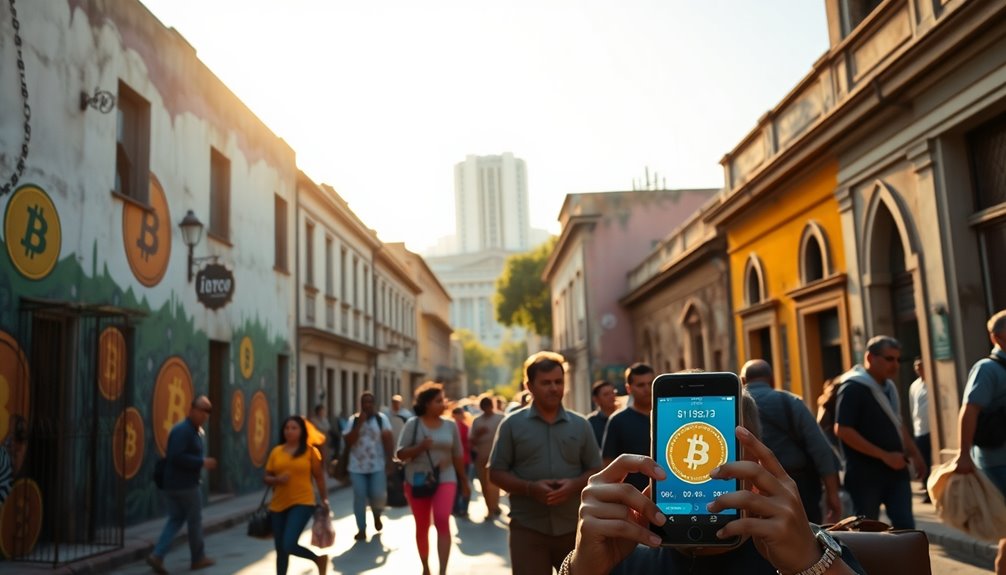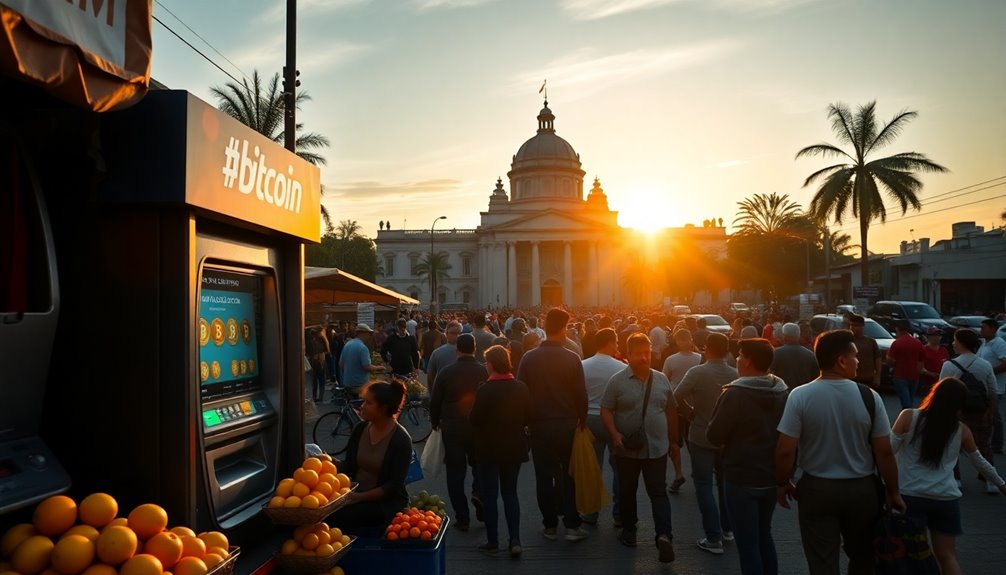El Salvador's bold move to make Bitcoin legal tender is now facing significant scrutiny as the IMF steps in. You're likely aware of the growing concerns about the economic risks associated with this cryptocurrency venture. With regulatory shifts on the horizon, the future of Bitcoin in El Salvador hangs in the balance. What implications could this have for the nation's economy and its global standing?

Since Bitcoin became legal tender in El Salvador on September 7, 2021, the country's bold experiment has drawn both interest and scrutiny. The Legislative Assembly approved the Bitcoin Law with 62 votes in favor, reflecting a willingness to embrace digital currency as a means of boosting the economy. The government allocated $150 million to support Bitcoin adoption, aiming to improve remittance efficiency, which accounts for over 20% of El Salvador's GDP. This move was also about increasing financial inclusion for the unbanked population, giving many their first taste of digital finance.
However, the journey hasn't been smooth. Bitcoin's notorious volatility has raised serious concerns about economic stability. You may have heard warnings from the International Monetary Fund (IMF) regarding the financial risks associated with embracing Bitcoin. While the strategy was intended to attract foreign investment and stimulate growth, government investments in bitcoin have raised eyebrows. Despite the challenges, the government remains hopeful that increased investment will eventually lead to economic growth.
Bitcoin's volatility has sparked concerns about economic stability, prompting warnings from the IMF as El Salvador navigates its ambitious cryptocurrency journey.
Public reception has been mixed, to say the least. Initially, many Salvadorans lacked a solid understanding of Bitcoin, which made the government's introduction of the Chivo wallet crucial for facilitating its use. Unfortunately, the initial excitement has waned. Usage for transactions has plummeted from 25.7% in 2021 to a mere 8.1% in 2024, as a significant majority still prefer the US dollar.
Protests and criticism have emerged over the lack of transparency and concerns about Bitcoin's volatility, underscoring the disconnect between governmental aspirations and public sentiment.
On the international stage, the IMF has been particularly vocal about its criticism of El Salvador's Bitcoin strategy, citing risks to financial stability. The World Bank even declined to assist with Bitcoin implementation due to environmental and transparency concerns. These reactions highlight the broader implications of El Salvador's experiment, sparking global discussions on cryptocurrency use in national economies.
Recent agreements with the IMF have led to regulatory adjustments that limit Bitcoin's role, indicating a shift in strategy. While the government has ambitious plans, including the creation of a tax-free Bitcoin City to attract foreign investment and bolster cryptocurrency use, you can't ignore the challenges that lie ahead.
El Salvador's journey into the world of Bitcoin is a compelling case study that may well influence how other nations approach cryptocurrency adoption in the future.




